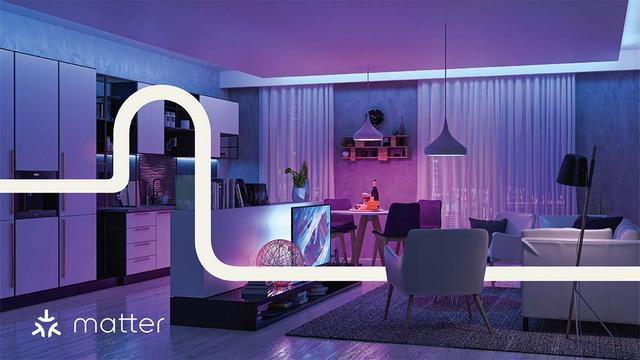In order to understand the benefits Matter could bring, we really need to look at why we need such a unifying standard.
Right now, there are three major players when it comes to smart home standards: Amazon's Alexa, Google Assistant, and Apple HomeKit. Of course, there are hundreds of brands making all manner of smart home devices, but the chances are they'll each plug into one or more of these systems eventually.
In all likelihood, a person will pick one smart home platform and stick with it, only buying products that work within that system. Right now, you can mix and match smart home systems in your home but you would have to set up your smart accessory with both Alexa and HomeKit if you wanted to be able to control it with a smart speaker from either brand.

Matter sets out to make these different ecosystems more interoperable.
It's also not all that straightforward for the average consumer to pick up something like a smart bulb in a store and know how well it's going to work, nor is it easy for a consumer to move between smart home ecosystems if they want to experience something else.
The status quo is also not ideal for manufacturers of smart home accessories who have to develop their products to work with multiple different smart home systems if they want to offer wider compatibility. For HomeKit in particular, that's meant that far fewer devices are available on the market as most makers settle on Alexa and Google Assistant as the platforms of choice.
Matter is designed to solve these problems by unifying smart home connectivity under one label. Now, before you start picturing the classic XKCD comic on the proliferation of standards, Matter actually has the buy-in of the major players in the smart home space, including Apple, Amazon, Google, and many more, so it's highly likely that it will become a reality.
Whether or not it lives up to its lofty goal to take the complexity out of the smart home remains to be seen.








